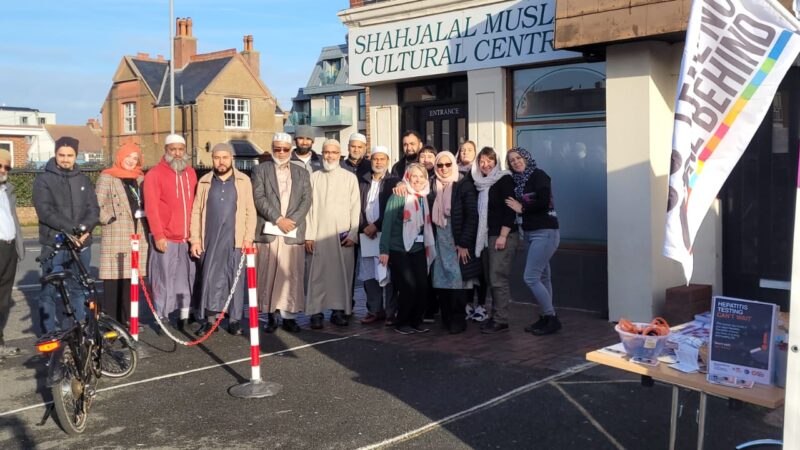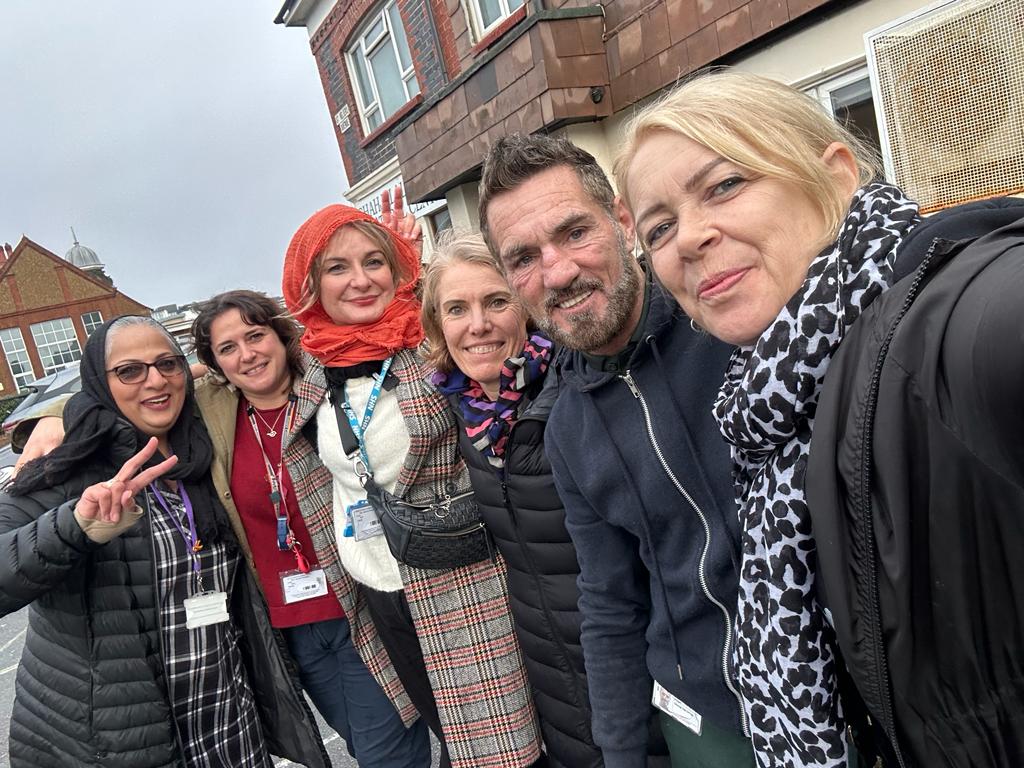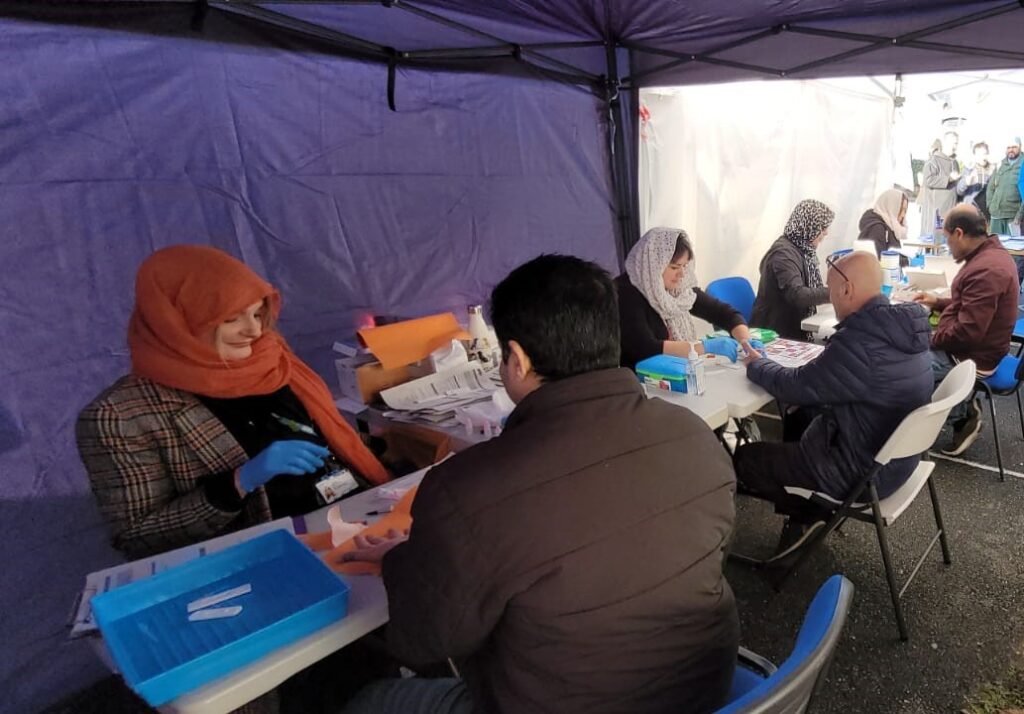
More than 120 people from the South Asian community in Hove have participated in a two-day testing event as part of a national project helping eliminate Hepatitis C as a major health threat by 2025.
Hepatitis C is a blood borne virus that is preventable, treatable, and curable for most people. If left untreated, however, the infection over time can lead to scarring on the liver (cirrhosis), liver failure or cancer.
Duncan Cresswell, Clinical Networks Manager (Hepatitis C/HIV) at University Hospitals Sussex NHS Foundation Trust said: “This is an amazing achievement and testament to the hard work of our hepatology nursing team and wonderful colleagues at The Hepatitis C Trust.
“Testing events like these are essential if we’re going to find the hidden populations of viral hepatitis in our communities as we aim to eliminate the viruses as a public health threat by 2025. As well as testing such high numbers, we were also able to provide education, awareness, and harm reduction advice to everyone we met and have created some amazing new contacts.”


In the UK, around 0.5% of the general population carries the Hepatitis C virus. For South Asian communities, the rate is believed to be much higher, at around 2.3%.
This is because the virus is more common in South Asia and those who are from or have travelled to countries including India, Bangladesh, or Pakistan and have accessed healthcare – including beauty treatments – can be more at risk of contracting the virus.
Risks can arise if the equipment used for procedures hasn’t been sterilised properly, including for head shaving, blood transfusions and dental implants.
In a bid to also address problems with healthcare inequalities and stigma, the Sussex Hepatology Network and The Hepatitis C Trust collaborated with the Imam – the prayer leader of a mosque – and were warmly welcomed to hold a two-day testing event at Shah Jalal Mosque, in Hove.
The group decided to test for the three main blood borne viruses, Hepatitis B, Hepatitis C and HIV, as all three infections can be passed on through blood to blood contact and early diagnosis can help to support better outcomes for patients.
The team were delighted by the welcoming response they received from the community who agreed to be tested and were keen to know their status. Eager to learn more about these viruses, attendees were given additional information in both Urdu and English.
Shabana Begum is the National South Asian Projects Coordinator at The Hepatitis C Trust and was the driving force behind these recent testing events.
She said: “Being able to speak both Urdu and English is a brilliant advantage at events like these. When someone can see that they share a similar background to a person that has been affected by Hepatitis C, it breaks down barriers and reduces stigma.
“The event was a real team effort between the hepatology nursing team and the staff and volunteers from The Hepatitis C Trust. Attendees appreciated having the opportunity to be tested at their place of worship and people enjoyed the convenience of going for a test straight after Friday prayers. They then encouraged their friends and family to pop down on Saturday.”
Despite the wet weather conditions, people turned up to get tested in the marquees outside of the mosque and were also provided information about home testing kits which are free to order from the NHS, providing a more discreet method of testing.
The Sussex Hepatology Network is responsible for delivering Hepatitis C resources across the whole county and is comprised of two NHS Trusts: University Hospitals Sussex NHS Foundation Trust, covering Brighton & Hove and West Sussex locations, and East Sussex Healthcare NHS Trust covering East Sussex areas.
As well as other NHS trusts, they also collaborate with many different partner organisations to reach at risk communities, working together toward the same goal of eliminating Hepatitis C by 2025.
The Sussex Hepatology Network and The Hepatitis C Trust will continue to work together, as well as with local community leaders to set up additional testing events across Brighton, with the potential to branch out across East and West Sussex as well.